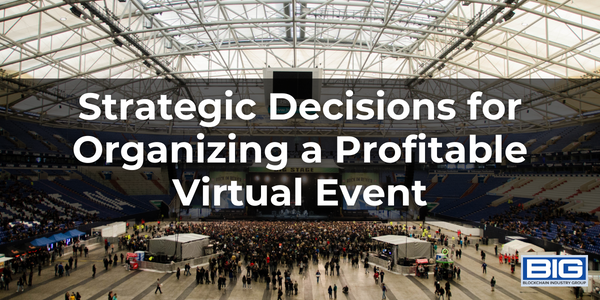
In recent years, virtual events have become increasingly popular due to the advancements in technology, the growth of online platforms, and the pandemic restrictions. Virtual events offer many benefits, such as wider reach, cost-effectiveness, convenience, and flexibility. However, organizing a profitable virtual event requires careful planning, strategic decision-making, and attention to detail. In this guide, we will discuss the key strategic decisions to make when considering whether to organize a profitable virtual event.
- Define Your Objectives and Target Audience
The first strategic decision is to define your objectives and target audience for the virtual event. What do you want to achieve from the event? Is it to generate leads, increase brand awareness, launch a new product, or educate your audience? Who is your target audience? What are their needs, preferences, and expectations? Understanding your objectives and target audience will help you tailor your virtual event’s content, format, and promotion. - Choose the Right Virtual Event Platform
The second strategic decision is to choose the right virtual event platform. There are many virtual event platforms available, each with different features, pricing, and scalability. Some popular virtual event platforms include Zoom, WebEx, GoToWebinar, Microsoft Teams, and Hopin. When choosing a virtual event platform, consider your budget, technical requirements, and the features you need, such as video conferencing, chat, polls, breakout rooms, and recording options. - Design Engaging and Relevant Content
The third strategic decision is to design engaging and relevant content for your virtual event. Virtual events require a different approach to content design than in-person events. You need to keep your audience engaged and interactive while delivering your message effectively. Some effective ways to design engaging content for virtual events include using multimedia, such as videos, graphics, and animations, breaking up the content into smaller segments, incorporating interactive elements, such as polls, quizzes, and Q&A sessions, and providing clear and concise information. - Promote Your Virtual Event
The fourth strategic decision is to promote your virtual event effectively. You need to create awareness and interest in your virtual event to attract your target audience. Some effective ways to promote your virtual event include using social media, email marketing, influencer marketing, paid advertising, and word-of-mouth. Make sure to provide all the relevant information about your virtual event, such as the date, time, agenda, speakers, and registration link. - Monetize Your Virtual Event
The fifth strategic decision is to monetize your virtual event effectively. If you want to generate revenue from your virtual event, you need to choose the right monetization model. Some popular monetization models for virtual events include ticket sales, sponsorships, ads, merchandise sales, and pay-per-view. Make sure to price your virtual event competitively and provide value to your attendees. - Measure and Analyze Your Virtual Event Success
The sixth strategic decision is to measure and analyze your virtual event’s success. You need to track your virtual event’s key performance indicators (KPIs) to evaluate its effectiveness and identify areas for improvement. Some important KPIs for virtual events include registration rate, attendance rate, engagement rate, conversion rate, and customer satisfaction rate. You can use various tools, such as Google Analytics, event management software, and surveys, to measure and analyze your virtual event’s success.
Email Marketing: Examples of Improper Practices
—
Exploring the Powerful Features and Functionality of Canva
—
Guerilla Marketing in Asia: 12 Strategies and Techniques
Conclusion
Organizing a profitable virtual event requires strategic decision-making, planning, and execution. By defining your objectives and target audience, choosing the right virtual event platform, designing engaging and relevant content, promoting your virtual event effectively, monetizing your virtual event, and measuring and analyzing your virtual event success, you can increase your chances of organizing a successful and profitable virtual event.



